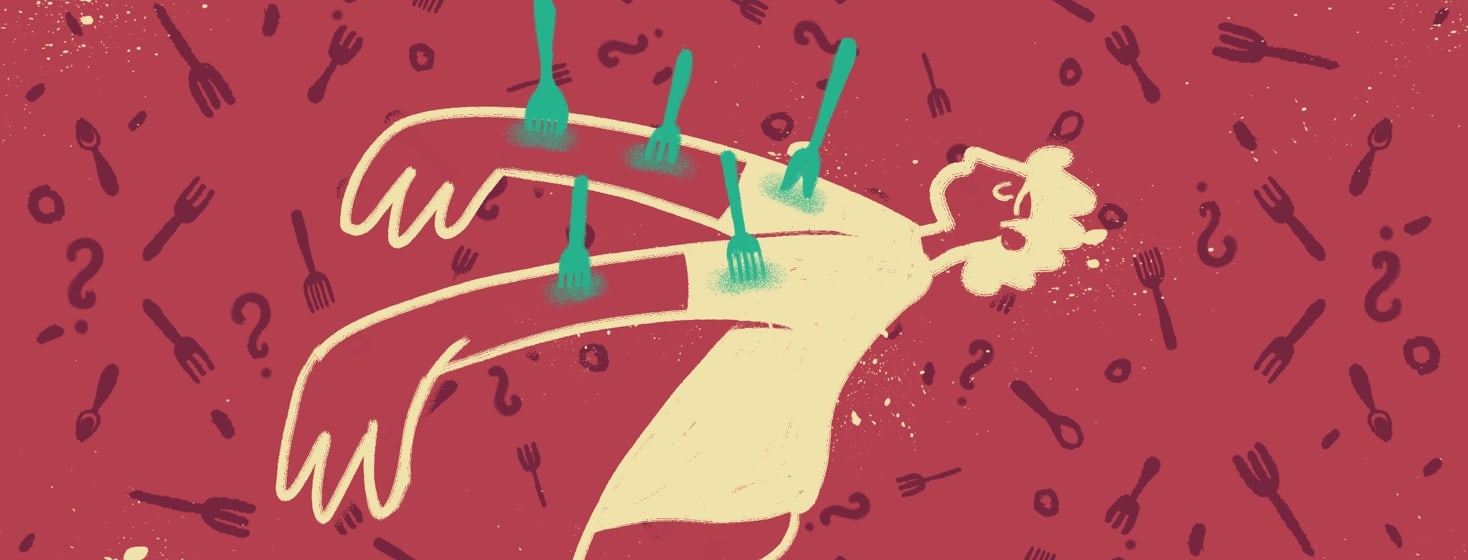Do You Understand the Fork Theory & the Spoon Theory?
I've discovered that one of the major differences between a sick person and a healthy person is their ability to make decisions. Those of us with chronic illness must think about our decisions with full intent. I have had to do this for 56 years. The rest of the world doesn't have to.
Most people start the day with tons of opportunities and energy. Most of the time, they don't have to worry about the consequences of their decisions, they just act. For those of us living with psoriasis, basic daily activities can be a real struggle and take planning.
Start a Forum
Explaining fatigue through spoons
The spoon theory is an experiment to illustrate the reality of life. This theory is used by many people with disabilities or chronic illnesses. It's shown in a picturesque understandable way how much energy and strength we need to perform daily activities.
Patients suffering from chronic diseases who accept this theory are called Spoonies and these Spoonies are the people who most commonly suffer autoimmune conditions like psoriasis, psoriatic arthritis, lupus, autoimmune diseases, fibromyalgia, migraines, chronic pain and many more.
How does it work?
Every day you have 12 tablespoons to spend. These spoons symbolize overall energy. Every activity consumes the stock of spoons, for example, showering costs you two tablespoons, breakfast one, work or school three, and so on.
Of course, you can borrow spoons from the day ahead, but then you have less energy and power that day to use. It's actually a very complicated game where you need to weigh your feelings and pain very accurately for each day.
What the fork?
To me, the fork theory sums up as “I’m done for the moment". I can only endure a few forks at a time, but if I get too anxious, I need to get rid of a fork immediately. When we feel that we no longer have any energy and can’t do anything.
As a psoriasis patient, a fork can mean many things, such as getting out of the house, meeting people, a severe itchy episode, taking pictures, even basic things such as cooking or the urge to go to the bathroom. You just need to get rid of something.
This or That
Does psoriasis have an impact on your confidence?
How does it work?
This serves as a base for explaining the concept of energy-saving in chronically ill people. The fork theory suggests that you can deal with a few forks a day, so you won’t mentally collapse. You might be able to handle removing a few small items to make room for one big thing.
You can take several forks for the day, but when the last fork reaches its limit, you can feel the breakdown in you. The last fork manifests itself with great irritability, the impulse to get out of the situation and be by yourself. Stick a fork in you, you're done.
These theories can bring acceptance
The idea behind both of these theories is to help people connect with others and explain to them what it is like to suffer from chronic illness because understanding in this case really means acceptance and respect.
Both theories are very well accepted among patients dealing with these everyday struggles. They give us a huge relief because it makes us feel understood.
So, what theory suits you the best today?

Join the conversation